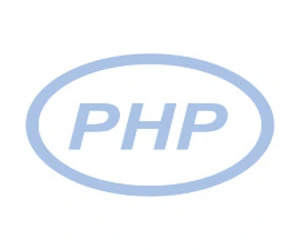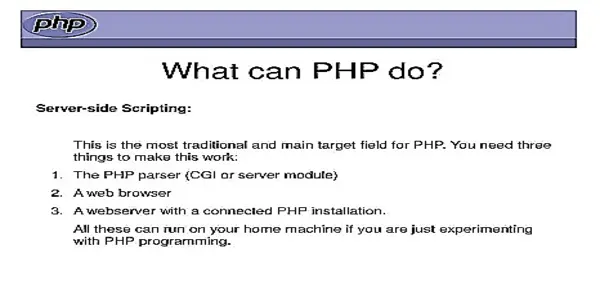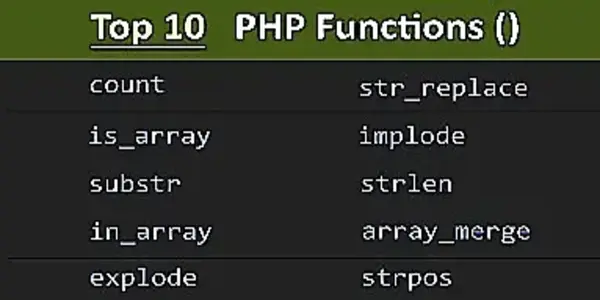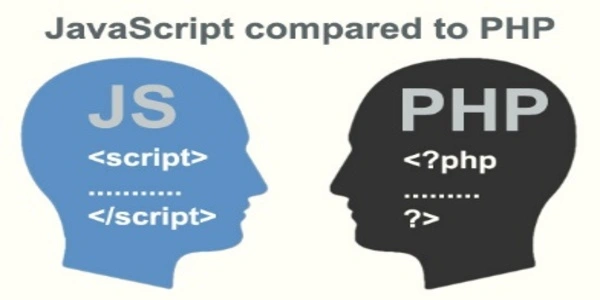What is PHP? | Web Development Language | PHP Coding
PHP is one of the most broadly used server side scripting language for web development. Popular websites like Facebook, Yahoo, Wikipedia etc., and our own very own Study tonight, are developed using PHP.
PHP is so popular because it’s very easy to learn, code and deploy on server, therefore it has been the first choice for beginners since decades.
Table of Contents
What is PHP?

PHP (recursive abbreviation for PHP: Hypertext Preprocessor) is a widely used open source general-purpose scripting language that is specifically suited for web development and can be embedded in HTML. As we know that PHP is a general-purpose scripting language designed for web development. It was originally made by Danish-Canadian programmer Rasmus Lerdorf in 1994. If you see it properly PHP Reference Implementation is now produced by the PHP Group. PHP originally stood for Personal Home Page, but it now stands for Recursive Initialization PHP: Hypertext Preprocessor.
History of PHP
Development of PHP began in 1994 when Rasmus Lerdorff wrote several Common Gateway Interface (CGI) programs in C, which he used to maintain his personal homepage. He extended them to work with web forms and to communicate with databases, and called this implementation the “personal home page/form interpreter”, or PHP/FI. PHP/FI can be used to build simple, dynamic web applications.
To expedite bug reporting and improve the code, Lerdorf was initially published on June 8, 1995 in the Usenet discussion group comp.infosystems.www.authoring.cgi as “Personal Home Page Tools (PHP Tools) Version 1.0”. Announced the release of PHP/FI. This release already contained the core functionality that PHP has today. It included Perl-like variables, form handling and the ability to embed HTML. The syntax was similar to Perl, but simpler, more limited and less consistent.
What Can PHP Do?
- PHP can generate dynamic pages
- PHP can create, open, read, write, remove, and close files on the server
- PHP can gather form data
- PHP can send and receive cookies
- PHP can add, remove, modify data in your database
- PHP may be used to control user-access
- PHP can encrypt data
- If we see then with php you are not limited to output HTML. You can output images, PDF files, and even Flash films. You can also prepare any text like XHTML and XML.

Why we should use PHP?
PHP can actually do anything related to server-side scripting or more broadly known as the backend of a website. Such as, php may receive data from forms, generate dynamic page content, can work with databases, make sessions, send and receive cookies, send emails, etc. There are also several hash functions available in PHP to encrypt users’ data which makes PHP secure and reliable to be used as a server-side scripting language. Even if the above abilities do not persuade you of PHP, there are some more features of PHP. We should use PHP can run on all major operating systems like Windows, Linux, UNIX, Mac OS X, etc. Nearly all of the major servers available today like Apache supports PHP.
What are the Disadvantage of PHP?
- PHP is not secure since it is open source.
- It’s not a good idea to build a desktop application.
- Not suitable for large web applications – PHP code is hard to maintain because it is not very modular.
- Modification issue – PHP does not allow changes to the native behavior of web applications.
What are the functions of PHP?

A PHP function is a piece of code that may be reused multiple times. It may take inputs in the form of argument list and return value. PHP has thousands of built-in functions
In PHP, we can define conditional functions, functions within functions, and recursive functions as well.
Benefits of PHP
- Code Reusability: PHP functions are defined only once and can be invoked multiple times, as in other programming languages.
- Less code: This saves a lot of code because you don’t need to write the logic multiple times. With the use of a function, you can write the argument only once and reuse it.
- Easy to understand: PHP functions separate out programming logic. Hence it is easier to understand the flow of the application as each logic is split in the form of functions.
What are the difference between PHP and JavaScript?

The main difference between PHP and JavaScript is that PHP treats objects and arrays as separate entities with different syntax whereas both are interchangeable in JavaScript. JavaScript allows the syntax of objects and arrays to be freely switched. Also, JavaScript doesn’t have associative arrays. Comparing PHP vs JavaScript, PHP can hold a slight upper hand due to its open-source availability and simplicity. Instead of comparing these languages, better combine PHP and JavaScript to take advantage of both.
Conclusion
PHP is and rightly so is the most popular server side programming language. So, in this conclusion it’s so much easier to learn and grasp than many other languages, and with tools like MAMP, it’s incredibly easy to get started with. Now before I leave I want to give you some pointers. At this point, you are just starting down the path of a PHP developer, and PHP has a huge community. So when you hit an obstacle and you don’t know how to handle something, ask the community. We are all in your place and you have the advantage of having us as a resource.
FAQs
1. What is PHP and examples?
PHP is a server-side scripting language that was created in 1995 by Rasmus Lerdorf. PHP is a widely used open source general-purpose scripting language that is particularly well suited for web development and can be embedded in HTML.
2. Why PHP is still so popular?
It’s Versatile: One of the major advantages of PHP is that it is platform independent, which means it can be used on Mac OS, Windows, and Linux and supports most web browsers. It also supports all major web servers, making it easy to deploy on a variety of systems and platforms at minimal additional cost.
3. Is PHP Worth Learning In 2022?
You shouldn’t be learning PHP in 2022, and companies shouldn’t start new projects in it. PHP became wildly popular because of WordPress, maybe more than 70% of websites run PHP, but 70% of kids probably listened to Justin Bieber, that doesn’t mean we should recommend it.
4. Why Java is better than PHP?
Java is considered faster than any other programming language by virtue of its design and architecture, but PHP runs a rapid development race when executed. PHP is faster than Java in web development and provides mainstream and advanced server-side content.
5. How much do PHP developers earn?
PHP Developer salary in India is between ₹ 1.2 Lakh to ₹ 6.6 Lakh and the average annual salary is ₹ 3.0 Lakh. The salary estimate is based on 6.1k salary received from PHP developers.
6. Why do major companies use Java and not PHP?
Java is supposed to be more stable than PHP. This requires a long code which is time consuming. Simultaneously, a well-written longer code becomes a more stable application with fewer crashes. This is the reason why banks and fintech brands choose Java without any further consideration.
7. What are the difference between HTML and PHP?
PHP is used for server-side programming that will interact with a database toreceive information, store information, send emails, and provide content to HTML pages to display on the screen. HTML is used for specifying colors, formatting text, alignment, etc. We can say that PHP is easy to learn but not as much as HTML.
8. What is the PHP Developer Qualification?
Bachelor’s degree in Computer Science or a similar field. In this field knowledge of PHP Web Frameworks, including Yii, Laravel, and CodeIgniter. And there are knowledge of front-end technologies including CSS3, JavaScript and HTML5… Understanding Object-Oriented PHP Programming.




